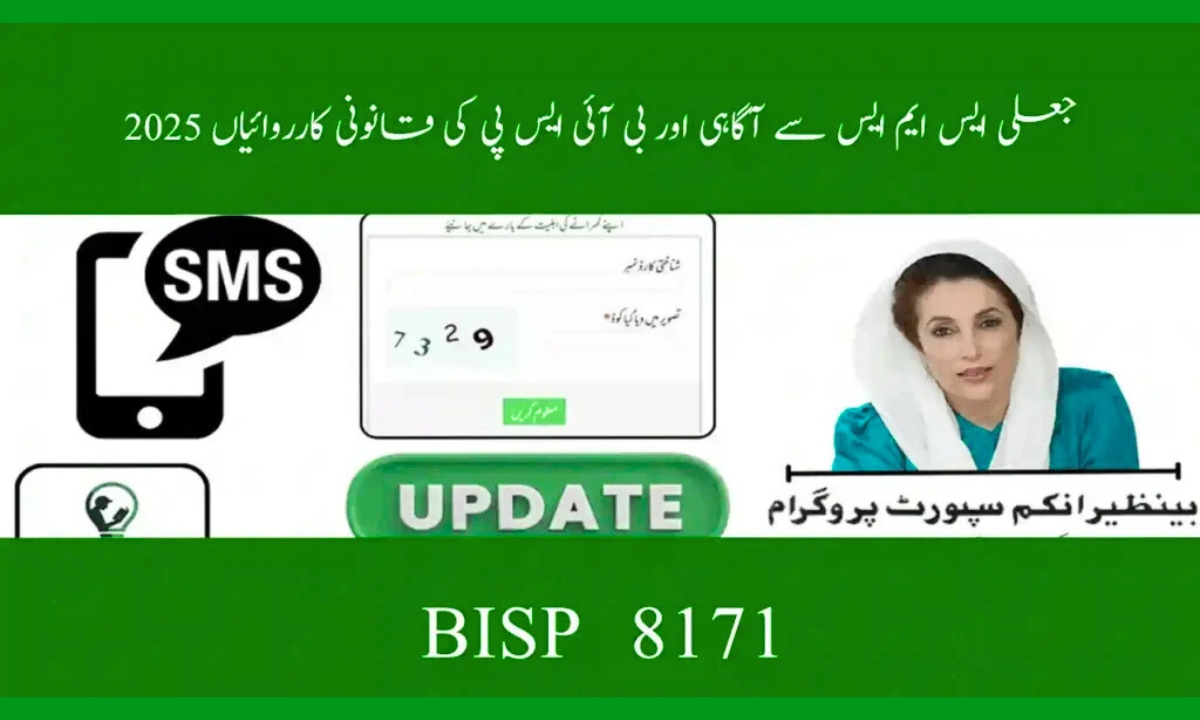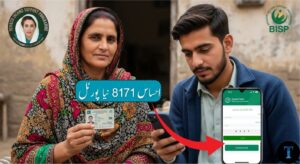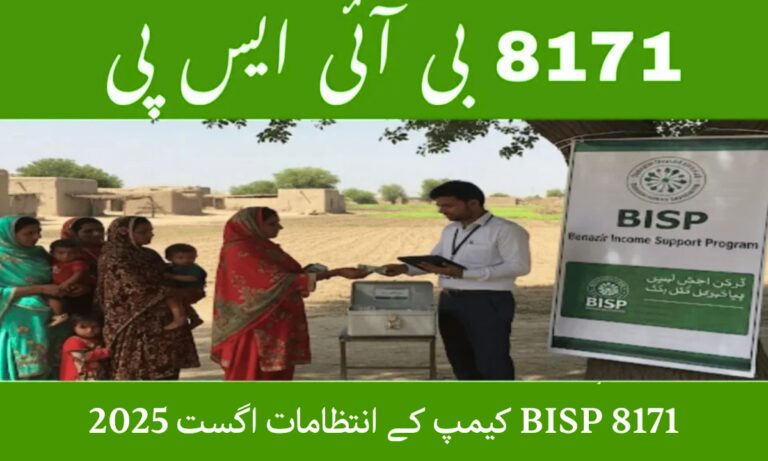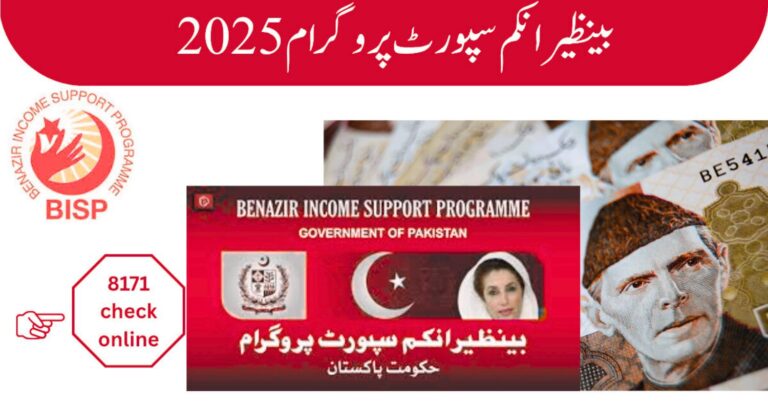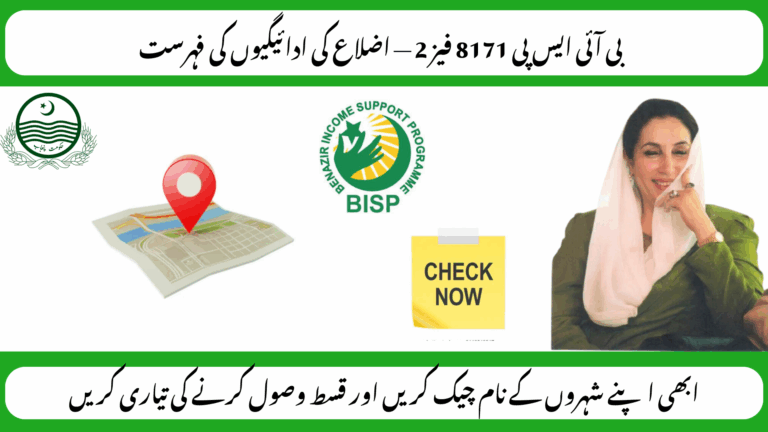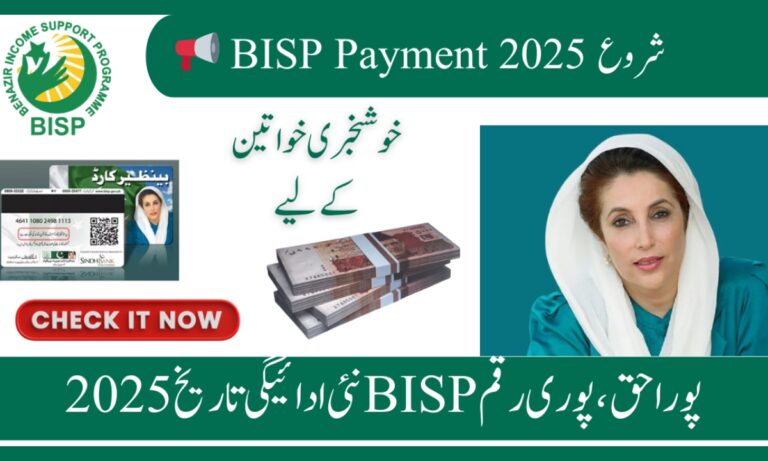Over the years, the Benazir Income Support Programme (BISP) has become a beacon of hope for millions of low-income families across Pakistan. It provides essential financial assistance to struggling households, helping them purchase food, send children to school, and meet basic needs. Unfortunately, as the program has expanded nationwide, fraudsters have also become increasingly sophisticated, exploiting beneficiaries through deceptive SMS scams and digital fraud schemes.
This comprehensive guide explains how fraudulent SMS scams operate, the legal and institutional countermeasures being implemented, and practical steps beneficiaries can take to protect themselves from these criminal activities.
Understanding Fraudulent SMS Scams Targeting BISP Beneficiaries
Fraudulent SMS messages are carefully designed to appear authentic and pressure recipients into sharing sensitive personal information. Scammers specifically target vulnerable communities that rely heavily on government financial aid programs.
Common Scam Message Patterns:
False Promises: Messages claiming new financial aid approvals or increased payment amounts without official verification.
Personal Data Requests: Asking for CNIC numbers, mobile SIM PINs, banking information, or other sensitive details.
False Urgency: Warnings suggesting payments will be permanently stopped if personal details are not provided immediately.
Fake Website Links: URLs designed to mimic BISP’s official portal for data harvesting purposes.
Staff Impersonation: Fraudsters pretending to be BISP officials, helpline operators, or government representatives.
These sophisticated tactics manipulate hope and fear, pushing vulnerable beneficiaries to make critical mistakes that compromise their personal and financial security.
Real-Life Impact Stories from Fraud Victims
Shazia, Mother of Three (Sindh): Shared her CNIC information after receiving a fake emergency aid message, resulting in her mobile wallet being completely drained of funds.
Rashid, Laborer (Punjab): Clicked on a fraudulent link that perfectly mimicked the BISP website; his CNIC and SIM PIN were subsequently misused for illegal SIM registrations and unauthorized transactions.
Rural Village in Khyber Pakhtunkhwa: Entire families were systematically targeted by fake helplines demanding processing fees, causing many households to lose their limited savings and emergency funds.
These documented examples highlight the devastating financial and emotional impact of fraudulent SMS scams on Pakistan’s most vulnerable populations.
BISP’s Comprehensive Multi-Layered Anti-Fraud Response
BISP has implemented a robust anti-fraud strategy, combining public awareness campaigns, legal enforcement action, and advanced technological security measures.
1. Extensive Public Awareness Campaigns
BISP reaches communities through multiple communication channels including television, radio, newspapers, social media platforms, and local community networks:
- Never share CNIC, PIN, or banking details through SMS or phone calls
- Only official verified numbers and authenticated channels provide legitimate updates
- Ignore all calls or text messages requesting money or personal information
- Report suspicious communications immediately to authorities
2. Strategic Partnership with Federal Investigation Agency (FIA)
The Federal Investigation Agency handles cybercrime enforcement with dedicated resources:
| FIA Action | Description | Legal Framework |
|---|---|---|
| Case Registration | Official cybercrime cases filed against fraudsters | Prevention of Electronic Crimes Act (PECA) |
| Arrests & Prosecution | Swift legal action against identified scammers | Criminal prosecution with imprisonment |
| Helpline Services | 24/7 reporting system for suspicious messages | Direct law enforcement response |
3. Telecom Operator Collaboration
Major telecom companies and PTCL actively support anti-fraud measures through:
- Immediate blocking of fraudulent SIMs and suspicious phone numbers
- Advanced SMS traffic filtering to reduce scam message delivery
- Sophisticated tracing of criminal networks, including international fraud routes
- Real-time data sharing with FIA for ongoing investigations
4. Community Engagement and Local Support
BISP involves local communities directly in fraud prevention efforts:
- Beneficiaries are actively encouraged to report fake SMS messages and suspicious calls
- Local community groups help spread awareness about new scam techniques
- Field staff provide direct assistance to villages with limited digital literacy
Legal Countermeasures and Criminal Penalties
Fraud targeting BISP beneficiaries carries severe criminal penalties under Pakistani law:
Cybercrime Prosecution: All fraud cases are prosecuted under the Prevention of Electronic Crimes Act (PECA) with mandatory imprisonment terms.
Arrests and Legal Consequences: Convicted fraudsters face substantial jail sentences and financial penalties.
Equipment Seizure: SIM cards, mobile phones, computers, and laptops used in scam operations are permanently confiscated.
Impersonation Penalties: Heavy fines and extended jail terms specifically for individuals pretending to be government officers or BISP staff.
These comprehensive legal measures send a clear message that exploiting BISP beneficiaries constitutes a serious criminal offense with severe consequences.
Essential Protection Guidelines for BISP Beneficiaries
Critical Safety Tips:
- Never share CNIC, PIN, or banking details through SMS, phone calls, or unofficial channels
- Avoid clicking on suspicious links or downloading unknown applications
- Confirm payment status exclusively through official BISP offices or verified helplines
- Report suspicious phone numbers immediately to FIA cybercrime wing or nearest BISP office
- Spread awareness among family and community members, particularly elderly relatives
Expert Analysis: Digital Fraud Prevention Strategies
Cybersecurity experts emphasize that most scams succeed because victims cannot quickly identify fraudulent activity. Enhanced awareness programs help vulnerable communities recognize suspicious messages immediately, refuse to share sensitive information, and alert others about active scam numbers.
Research indicates that community-based awareness programs can reduce fraud victimization rates by up to 60% when implemented consistently across rural and urban areas.
What’s Next: Long-Term Digital Literacy Solutions
Sustainable fraud prevention requires comprehensive digital literacy education, particularly in rural areas with limited technology exposure:
- Structured training sessions for verifying official government information online
- Practical workshops on SMS security and mobile wallet safety protocols
- School-level awareness programs targeting younger generations for future protection
- Community education centers providing ongoing digital safety education
Digital literacy empowers entire communities and significantly reduces vulnerability to evolving online scam techniques.
Frequently Asked Questions About BISP Fraud Protection
Does BISP ever request CNIC or banking details via SMS?
No. BISP never requests personal information through SMS messages, phone calls, or unofficial channels.
How can beneficiaries verify message authenticity?
Only trust official BISP contact numbers or visit the nearest BISP office for verification of any communications.
What immediate action should recipients take for suspicious SMS?
Ignore the message completely, do not reply or click links, and report it immediately to FIA or BISP staff.
Do fraudsters face serious legal consequences?
Yes, convicted scammers face mandatory imprisonment, substantial fines, and permanent confiscation of equipment under cybercrime laws.
Take Action Now: Protect Yourself and Your Community
Fraudulent SMS scams specifically exploit Pakistan’s most vulnerable populations, threatening both personal finances and community trust in essential government programs. BISP, FIA, telecom operators, and local communities are working together to combat fraud through strengthened awareness campaigns and strict legal enforcement.
Don’t become a victim of these sophisticated scams. Stay vigilant, verify all communications through official channels, and report suspicious activity immediately. Your awareness and quick action protect not only your family but also help safeguard your entire community from criminal exploitation.
Share this critical information with friends, family, and neighbors to build a stronger defense against fraud targeting BISP beneficiaries across Pakistan.
